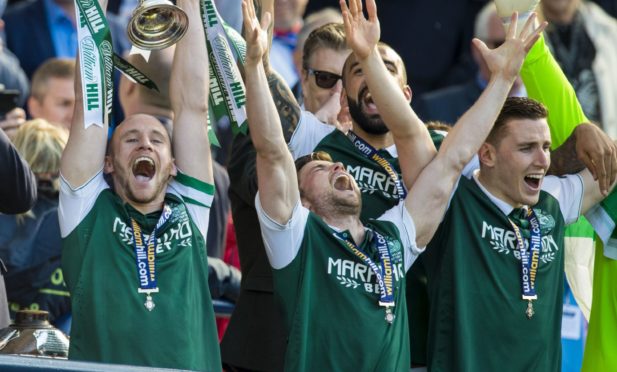
If surprise knockouts are one of the joys of cup football, this year’s Betfred competition has been the competition that keeps on giving.
The group stage offered up 2010 winners, Dundee United, as a sacrifice, the Tangerines’ haul of eight points from four games – in a section topped by St Johnstone – not enough to see them progress.
It was in the second round, however, that things really livened up, with a trio of heavyweights sent crashing to the canvas.
Holders Celtic were left punch drunk from a 1-2 by Ross County in Glasgow’s East End, a result that provoked a mini-riot, and prompted calls for manager, Neil Lennon, to lose his job.
Hearts, back-to-back Scottish Cup Finalists, were dumped by Alloa Athletic, while Aberdeen were dispatched by St Mirren.
With the Paisley Saints following up with a dramatic victory against Rangers in the quarter-finals, it began to look as if the 2020 effect had struck again.
When the dust had settled, an unlikely quartet remained – Livingston, St Johnstone, Hibs and Jim Goodwin’s men.
“A fantastic opportunity for teams to play at the National Stadium – teams who might not otherwise get the chance,” said pundits breathlessly as they previewed a semi-final draw that paired the Perth Saints with Hibs and put Livi’s Lions up against the Buddies.
The first of the ties will be fought out from 5.30pm on Saturday. The second comes some 22½ hours later.
If the scheduling sounded a little confusing – a by-product of having to put the needs of broadcasters first – the same was definitely the case with the betting.
Faced with the absence of an obvious big gun, bookies fell over themselves to appoint one.
They installed Hibs –in fairness one of the country’s leading clubs, also one of the best-supported – as odds-on favourites to lift the silverware.
Livingston, Scotland’s form side over the last couple of months, were initially over 5/1 in places, and their opponents, St Mirren, despite their terrific run in the competition, were a double-figure price.
Weight of money has since forced both prices to be cut nearly in half, while Hibs have been pushed out to (short) odds against.
Similarly warped logic was behind the chat alluding to fairytale occasions coming up for this group of minnows.
Of the last seven Scottish teams to win domestic silverware, three – St Johnstone (Scottish Cup in 2014), St Mirren (League Cup in 2013) and Hibs (Scottish Cup in 2016) – are involved in this year’s semi-finals.
The fourth, Livingston, can also claim to have won a major trophy during the last 20 years, having claimed the League Cup in 2003-04.
That victory was against Hibs and came at Hampden Park in front of a crowd of more than 45,000, admittedly the majority of whom were clad in the green-and-white of their opponents.
Consider that statistic, and a different conclusion comes to mind.
Far from being the shock troops of the competition – as, for example, Bonnyrigg Rose would have been had they managed to hang on against Dundee at Dens Park in the Scottish Cup last weekend – these are the usual suspects.
Not the kind of usual suspects with an invisible arrow above their head in the line-up to donate guilt, perhaps, but very well-kent faces nevertheless.
Their respective status in the Scottish game should not be underestimated.
By the evening of February 28, one of the quartet will be able to boast proudly that they have won two trophies in the last 20 years.
To put the achievement into context, Aberdeen, with the biggest budget outside of Celtic and Rangers, have only lifted one piece of silverware – the League Cup in 2014 – over that period.
If it is a thought likely to sit a little uneasily with Derek McInnes, the Dons boss since 2013, it flags up the amount of credit the winning manager can expect to receive.
A St Johnstone win would reward the Perth club’s appointment of Callum Davidson in his first post as boss in his own right.
Likewise, success for Livingston would be a dramatic vindication of David Martindale’s promotion.
For Goodwin and Hibs boss, Jack Ross, a trophy would add sheen to already-impressive reputations.
The status of the competition itself will likewise be enhanced for having provided splendid distraction at a time when it was needed most, and when its rival, the Scottish Cup, has been shunted around from pillar to post by the effects of Covid-19.
And a competition played from start to completion in one season during these trying times?
That really is cause for a proper celebration.

Enjoy the convenience of having The Sunday Post delivered as a digital ePaper straight to your smartphone, tablet or computer.
Subscribe for only £5.49 a month and enjoy all the benefits of the printed paper as a digital replica.
Subscribe © SNS Group
© SNS Group